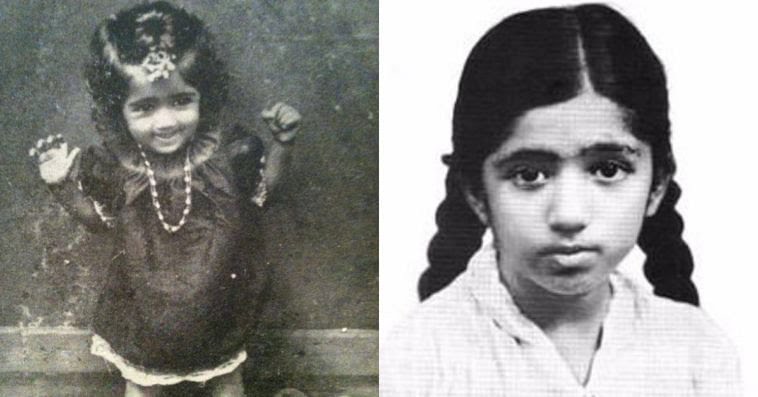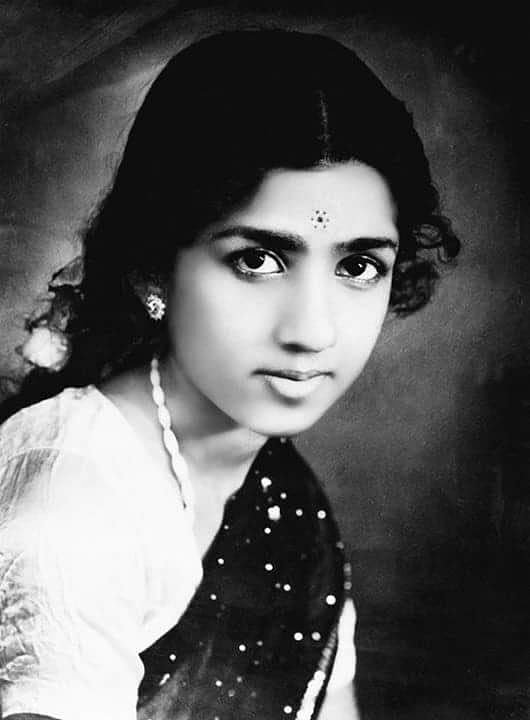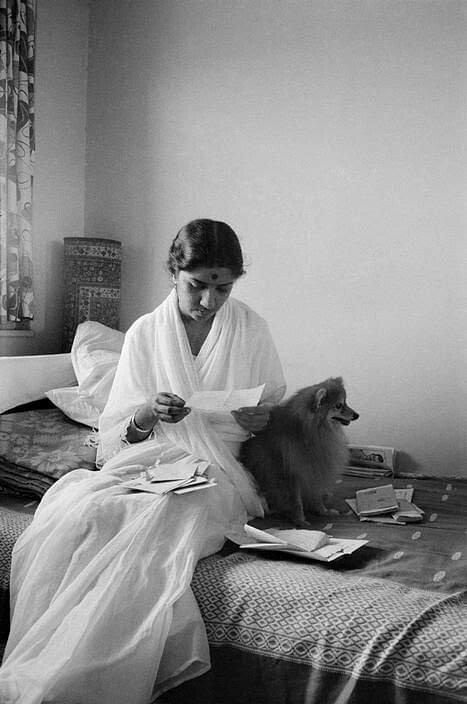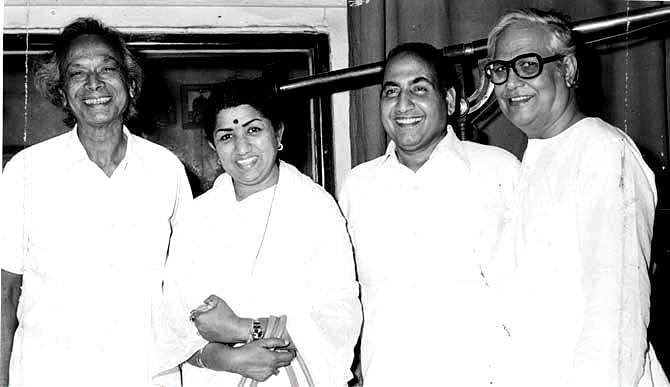Lata Mangeshkar, the ‘Nightingale of Bollywood’ has passed away on the morning of 6 February, 2022.
The veteran singer was admitted to a Mumbai hospital in early January this year after she tested positive for Covid-19 and was also diagnosed with pneumonia. She was born in 1929, and was 92 years old.
In a career spanning seven decades, Lata Mangeshkar recorded over 27,000 songs in 36 regional and foreign languages. Lata Didi, as she was respectfully known, was also bestowed with several prestigious awards including the Bharat Ratna, India’s highest civilian award. Didi was the second vocalist to ever receive it, after M S Subbulakshmi.

With melodious and soulful hits like Dafli Wale, Pyar Kiya Toh Darna Kya, Dil To Pagal Hai, Luka Chupi, Lata Didi enraptured the country with her ability to sing in the rare third octave.
But did you know Lata Didi’s original name is Hema? She was renamed Lata based on a character ‘Latika’ from her father’s play, BhaawBandhan.
Lata didi was born into a family of artists. Her father, Pandit Deenanath Mangeshkar, was a classical singer and theatre actor, who discovered her singing talent.
Deenanath ran a theatre company that produced musical plays where Lata started acting by the age of five.
Lata’s ability to sing Raag Puriya Dhanashree helped him discover her singing talent. Speaking to Stardust, she recalled, “It so happened that once my father asked his shagird (disciple) to practise a raag while he finished some work. I was playing nearby and suddenly a note of the raag that shagird was rendering, jarred. And the next minute, I was correcting him. When my father returned, he discovered a shagird in his own daughter.”

Lata’s father said to her mother, “We have a singer at home. We never knew it.”
At five, Lata started working as an actress in her father’s Marathi musical plays, also known as ‘Sangeet Natak’.
Lataji learned music from stalwarts like Aman Ali Khan Sahib and Amanat Khan, apart from her father. She recorded her first song in 1942 for the Marathi film, Kiti Hasaal; but it never saw the light of day, as it was edited from the film. The song was called Naachu Yaa Gade, Khelu Saari Mani. Although Natali Chaitraachi Navalaai is known as her Marathi song debut.
The oldest of five siblings–Meena, Asha, Usha and Hridaynath, Lata shouldered the financial responsibility of the family after her father’s death in 1942.
When she first entered the film industry as a playback singer, she was rejected. At the time, singers like Noor Jehan and Shamshad Begum ruled the roost. She was told her voice was ‘too thin’ for the time, in comparison to the heavy-nasal voices that belted hits.
Her major break came in 1949, with the song Aayega Aanewala from the film Mahal. She turned a sensation overnight with the song that not many can muster the courage to croon.
Her fame has hardly dimmed ever since.
Famously, in 1962, when Lata Didi sang Aye Mere Watan Ke Logon to salute the martyrs of the war against China, PM Nehru told her she had moved him to tears.

The legendary singer’s fame goes far beyond the shores. In 1974, Didi became the first Indian to perform in the Royal Albert Hall, London. She has been awarded an Honorary Doctorate by six universities, including the New York University.
France conferred its highest civilian award (Officer of the Legion of Honour) on Didi in 2007.
In 1999, the perfume Lata Eau de Parfum was launched in her honour. Didi also designed a collection called Swaranjali for an Indian diamond export company, Adora. Five pieces from this collection, when auctioned at Christie’s, earned £105,000 which Didi generously donated to the relief fund for the Kashmir earthquake in 2005.
Her last recorded song was in 2015 for an Indo-Pak gay love story. From 1942 to 2015, she worked as a playback singer for 73 years.

Perhaps her legend can be summed up in the following anecdote – when questioned about his inspiration to make music, an urban legend says composer SD Burman allegedly replied, “Give me a harmonium, give me Lata (Mangeshkar), and I will make music.”
We share our deep condolences for this loss to the nation.
No comments:
Post a Comment